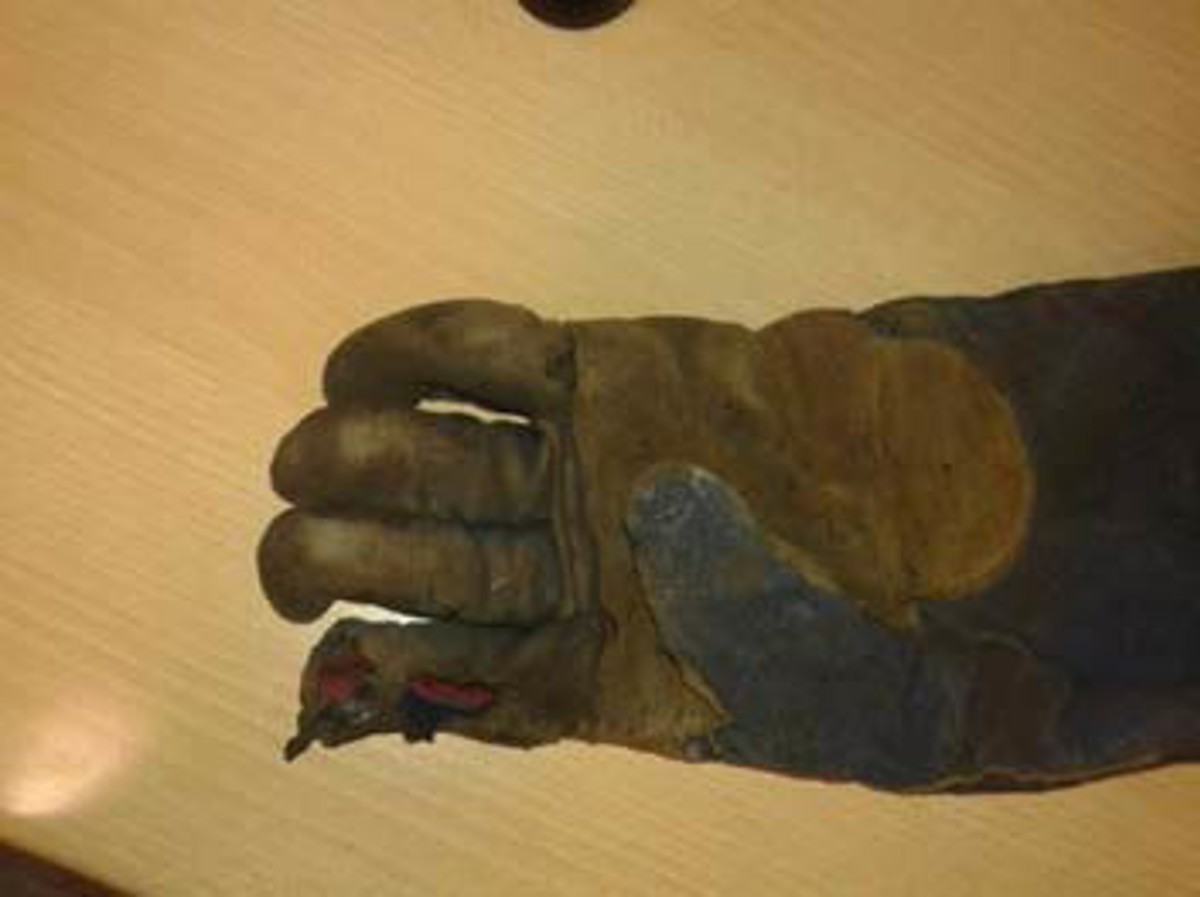‘Routine’ task, non-routine result: Finger injury during welding
- Safety Flash
- Published on 23 June 2015
- Generated on 22 January 2026
- IMCA SF 09/15
- 2 minute read
Jump to:
A Member has reported an incident in which a welder injured his finger whilst at work.
What happened?
The welder was finishing cutting and noticed there was some loose slag built up from previous work. He swept this slag away with his hand and felt he had cut his left index finger. He inspected the welder’s hot work gloves he was wearing and noticed there was a hole in the left index finger of the glove. He was unsure if the hole was caused by sweeping away the slag or if it was already present.
This was a ‘routine’ or everyday activity, where complacency had perhaps set in.

injury to hand
Findings
Our member notes:
- It is important to retain a focus on the ‘routine’ as well as on significant, major or potentially catastrophic ‘high risk’ events.
- Crew should remain alert to memory lapse or lack of awareness.
Lessons learned
In this case:
- The welder should have used a broom for removing the loose slag.
- Gloves are personal protective equipment (PPE) and worn for protection, they are not sweeping tools.
- PPE should be regularly checked for damage – perhaps most especially, helmets, safety glasses and gloves. Change out and dispose of damaged PPE.
- The incident was discussed at welder’s pre-start meetings and use of brooms was reiterated. The risk assessment for welding was reassessed regarding proper use of tools, equipment and materials.
Actions
Members should be aware that IMCA has a pocket safety card on this topic – Watch your hands.
Related safety flashes
-
IMCA SF 05/15
2 April 2015
-
IMCA SF 16/13
17 October 2013
IMCA Safety Flashes summarise key safety matters and incidents, allowing lessons to be more easily learnt for the benefit of the entire offshore industry.
The effectiveness of the IMCA Safety Flash system depends on the industry sharing information and so avoiding repeat incidents. Incidents are classified according to IOGP's Life Saving Rules.
All information is anonymised or sanitised, as appropriate, and warnings for graphic content included where possible.
IMCA makes every effort to ensure both the accuracy and reliability of the information shared, but is not be liable for any guidance and/or recommendation and/or statement herein contained.
The information contained in this document does not fulfil or replace any individual's or Member's legal, regulatory or other duties or obligations in respect of their operations. Individuals and Members remain solely responsible for the safe, lawful and proper conduct of their operations.
Share your safety incidents with IMCA online. Sign-up to receive Safety Flashes straight to your email.